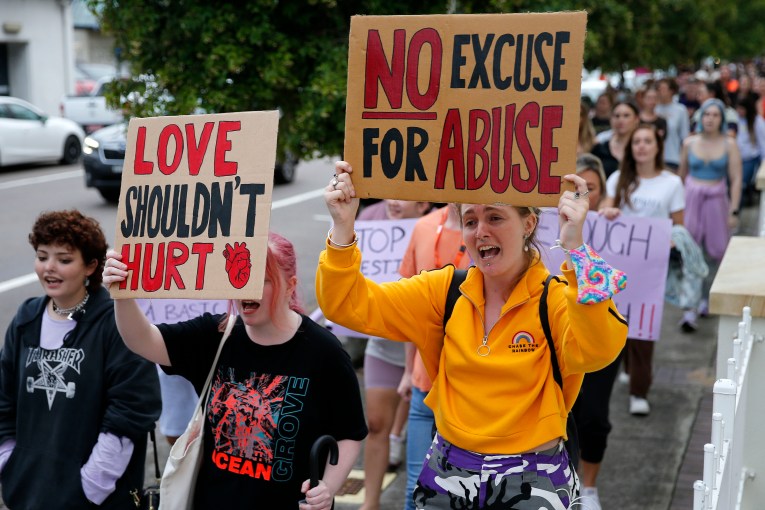The unlikely budget winners
The federal budget left many people wondering how they would get by with less, but one social group with almost nothing left to lose has emerged on the winners’ list.
The government has committed $115 million to extend the National Partnership on Homelessness for another year, providing much-needed certainty for organisations supporting Australia’s homeless.
The budget announcement is a reprieve for the program, which also has funds tipped in by the states to prevent people from becoming homeless, promote the development of social housing and help to break the cycle of social exclusion.
But for many of those people, homelessness is not a choice. It is the end result of “mental health, addiction or trauma caused by childhood sexual abuse,” says Major Brendan Nottle of the Salvation Army. “All those things are triggers for people to leave home. They feel invisible,” he said.
Figures show that there were more than 105,000 people with nowhere to live in 2013, with new data to be released in July, a bad time of the year to be homeless in the southern states.
 Darren’s story
Darren’s story
While many people who live on the streets have a backstory heavy with misfortune, 44-year-old Melbourne man Darren*, who has been homeless for more than three years, is different.
Most days he can be found on the steps of an office building at the corporate end of Melbourne’s CBD. There might be a take-away coffee cup and packet of cigarettes beside him. But when you stop to speak to him, you realise his story doesn’t follow the script.
He said becoming homeless was a choice. He said it was an easy one. He wanted to be “outdoors with God’s creation”.
“Sure, it was difficult for the first few nights but it makes a boy into a man sleeping on the streets,” said Darren, who worked in finance.
Speaking with The New Daily, he said life was getting too difficult and he was “losing connection” with the universe so he decided to leave the material world and embrace a life of simplicity.
“You can’t imagine how amazing it is to have the peace and quietness of nature at night,” he said. “The buildings are not so nice to look at but the sun and the moon are still visible”.
“[Homelessness is] not for the faint hearted but once you get used to it and overcome the fear of being attacked you become a man,” he said.
Showing off his new runners, which he received from St Vinnie’s, Darren said he had enough clothes to keep him warm at night.
“Life is stress free. You don’t have to worry about paying bills and have lots of time to ponder”.
Darren admitted the city skyscrapers couldn’t be compared to the lush mountains east of Melbourne, but he said it was “difficult to hunt for food in the bush so services in Melbourne make it easy to be on the street”.
“In the city there are lot’s of places that provide hot food and I’m on Disability Support Pension (DSP), which is enough to get me by,” Darren said.
Domestic violence
Homelessness Australia CEO Glenda Stevens said the catalyst for a three per cent rise in homelessness during 2012-2013 was domestic violence.
“The largest cause of homelessness in Australia, unfortunately, is women and children, escaping domestic violence and seeking refuge,” Ms Stevens said.
She said 25 per cent of the homeless across Australia is women and children, followed by 27 per cent under 18 years of age and more than 17000 children under 12.
“Homelessness is a severe problem in our community; it’s a problem that not only affects the person themselves but the whole community and our economy,” Ms Stevens said.
Exception, not the rule
The Salvation Army’s Major Brendan Nottle said Darren fell into the “absolute minority” group of those sleeping rough.
“Some people would understand that there are some people who chose to be homeless. But I would put that group in absolute minority,” Major Nottle said.
“When you start to talk to other homeless people you hear horrific stories,” he said.
“I’m often overwhelmed by their incredible resilience. I put myself in their shoes and I think, ‘How on earth are you still standing, let alone living a life which has some sense of enjoyment about it?
“These people are not lazy, they are not bums, they have had a lifetime of trauma, which has damaged them, and it takes time and effort to bring them back from those experiences.”
A Department of Human Services spokesperson said DSP was designed for people unable to work for at least 15 hours per week. Darren falls into this category.
He said the criteria to qualify for the DSP is “strict and people with permanent physical, intellectual or psychiatric impairment” receive a minimum rate of $532.60 per forth night.
“Any assessment of the functional impact of person’s medical condition is made based on evidence provided by a person’s treating health doctor and an interview with the person claiming DSP,” the spokesman said.
While the spokesman said that all assessment for DSP follow a “thorough and fair process” they would not give information about Darren who says he is not suffering from any disability.
“For privacy reasons, we cannot discuss individual cases,” he said.
Major Nottle said if people are not sure what they can do and they want to help, they can call 1800community and the Salvos will come out to help.
“We are obviously not security and won’t be able to move people from shop fronts, but we can build a relationship with them, build trust, start to hear their story, then once we are on that level, we can provide them with appropriate help,” he said.
If you would like to help or donate call 1800community or visit www.salvationarmy.org.au.
* Darren is not his real name








